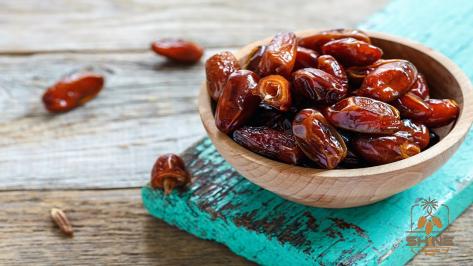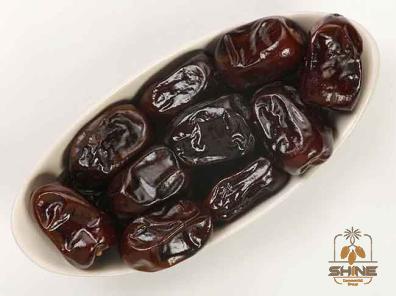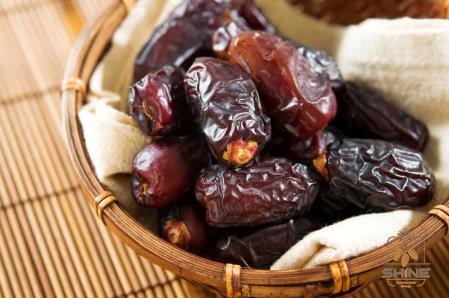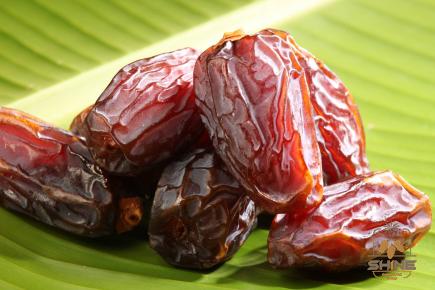As a sugar alternative, both date sugar and coconut sugar are used. But which one is a better choice? Coconut or date?
There is no denying how much sugar is adored by the human species, and there is a perfectly logical justification for this. Its sweet and delicious flavor is something we can’t get enough of. However, sugar has received a bad rap in recent years.
Considering them to be healthier alternatives, consumers now frequently choose sweeteners that are more natural and less processed.
As a direct result of this, date sugar and coconut sugar are both incredibly popular and widely used everywhere in the world. We’ll continue contrasting date sugar with coconut sugar in this part and talk about each one’s advantages and disadvantages.
Which one is better than the other, and why. Although date sugar and coconut sugar are somewhat similar to one another, they differ slightly from one another in terms of taste, texture, sweetness, and nutritional value.
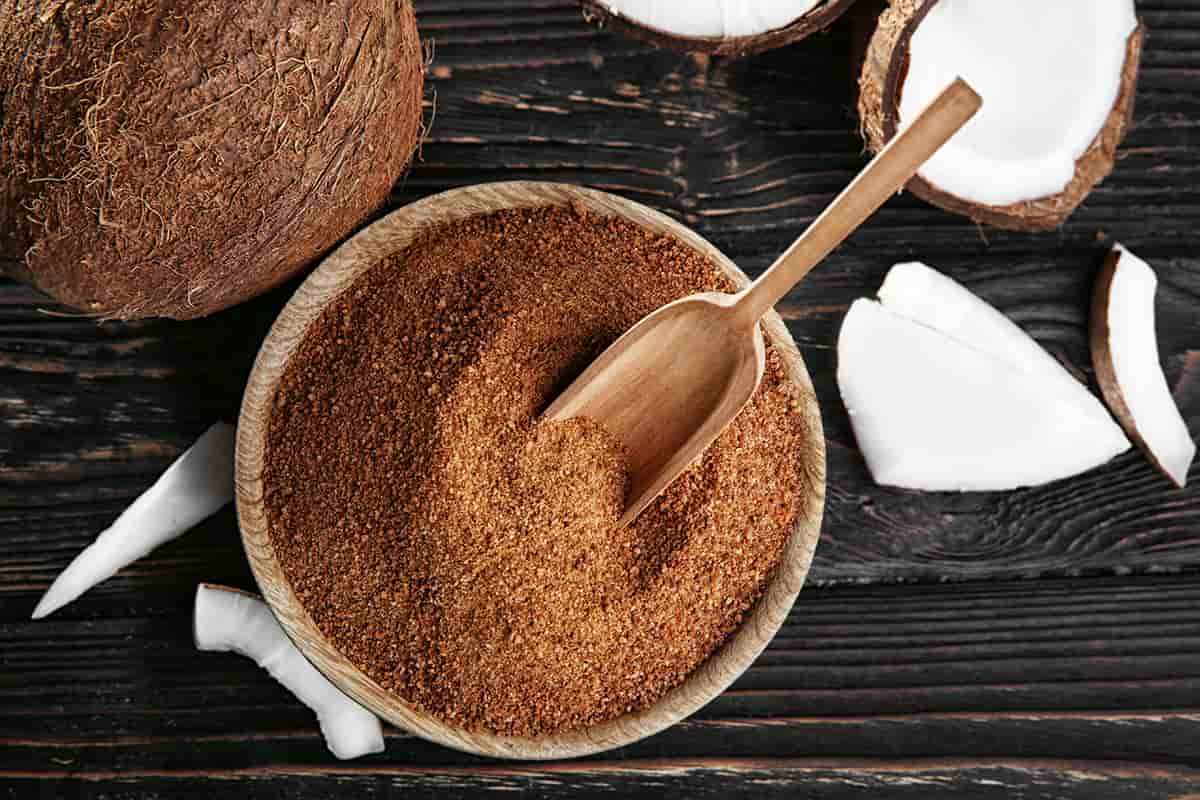
Date sugar has a strong sweetness and a flavor that hints at butterscotch just a little.
Although the material has a smooth and soft texture, heated liquids do not cause it to entirely melt or dissolve.
There are always a few little pieces of fibrous material that are left over because the entire date is used to make the sugar. Its uses are therefore rather constrained as a result.
On the other hand, coconut sugar is made from the sap of the coconut tree, not the real coconut. As a result, in contrast to what one might anticipate, it has no coconut flavor at all. The taste has hints of caramel and nuttiness, to use one characterization.
It is a great alternative to brown sugar because it has a comparable viscosity and melts easily. Although there is just a slight variation between the two choices, the differences in nutritional value will be examined later. Dates that have had their pits removed are used to make date sugar.
The dates are ground into a paste and combined with malt dextrin, a typical component of food additives. The mixture is then baked to dry it out and turn it into powdery granules that resemble sugar but aren’t whitened like regular sugar.
Since the entire date is used to make date sugar, all of the natural fiber and antioxidant qualities of the fruit are preserved. Additionally, it is viewed as a healthier alternative to normal white table sugar.
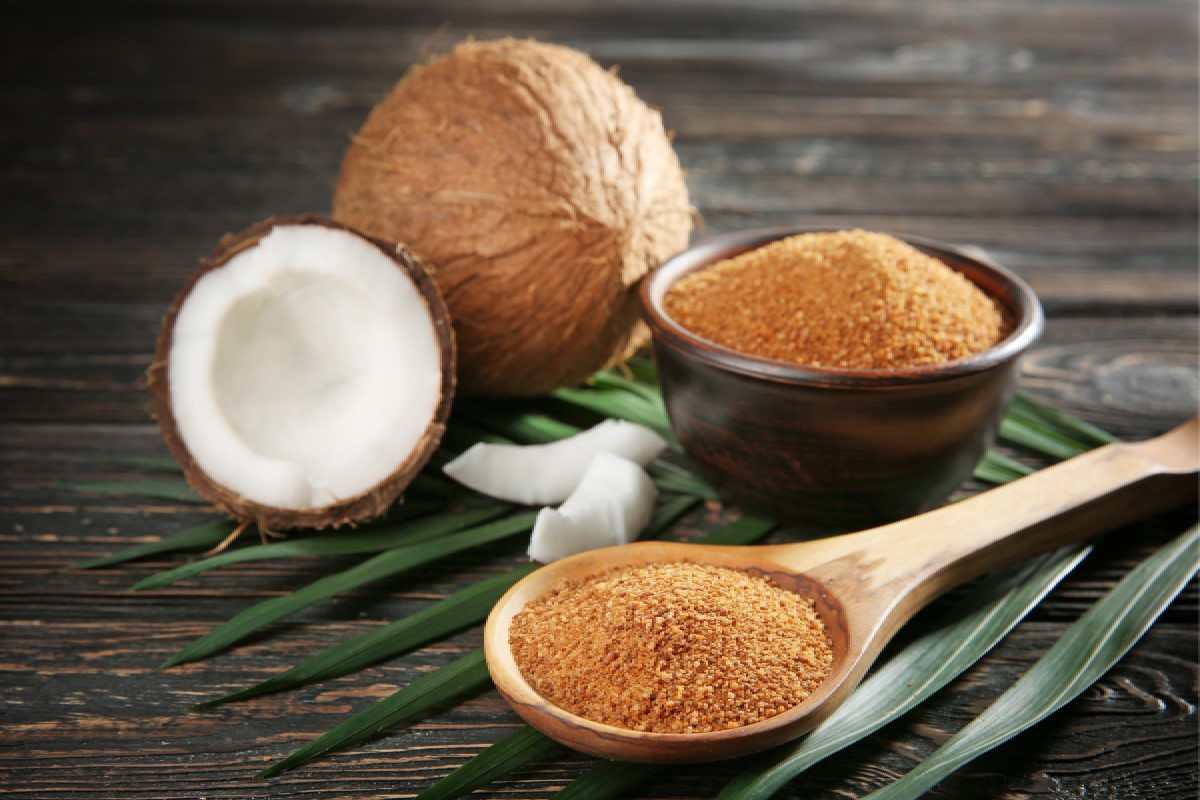
It can serve as a suitable substitute for brown sugar in baking. Coconut sugar often referred to as palm sugar, is made by making an incision into the bloom of a coconut palm tree, collecting the sap that pours out of the wound, heating the fluid until it boils, letting it evaporate, and then crystallizing the liquid into sugar.
After that, it is broken up into tiny crystals that, other than not being bleached white, resemble ordinary sugar quite a bit. Because it is believed to be healthier than ordinary table sugar, coconut sugar is becoming more and more popular as an alternative.
Date sugar and coconut sugar are similar to one another in sweetness, minimal processing, and calorie content when compared to less processed items. Either of these sugars works well as a substitute for white sugar and brown sugar.
When put side by side, date sugar continues to have a slight nutritional advantage, however, this difference is not especially significant.
Because it can melt and dissolve fully, providing you with more options for how to utilize it, coconut sugar may be the better choice when it comes to texture.
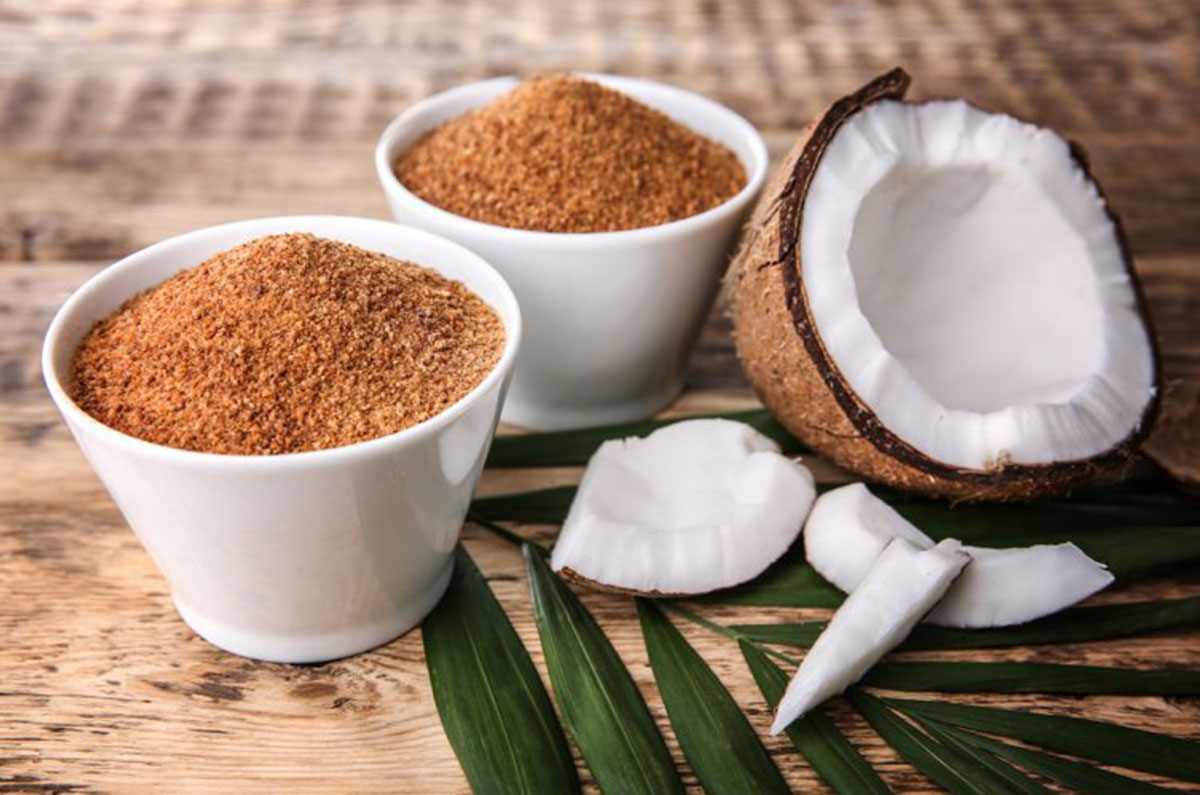
Both have a sweetness to their flavors, but a person’s preference for one over the other is purely a matter of taste.
Compared to coconut sugar, date sugar has fewer calories per serving. Two tablespoons of date sugar contain about 20 calories, while a serving of coconut sugar contains about 30 calories.
Even though it might not seem like much of a change, the number of calories consumed will increase proportionally.
If you are worried about your calorie intake or if you enjoy larger amounts than the average person, date sugar is a choice to think about. In contrast, date sugar has fewer carbohydrates per serving than coconut sugar.
A serving of two teaspoons of coconut sugar provides 8 grams of carbs, compared to about 5 grams of carbohydrates in date sugar.
Date sugar is a better choice for those who are restricting their carbohydrate consumption because it has fewer calories since most people end up consuming far more than two teaspoons of sugar in their food or drink.
In comparison to coconut sugar, date sugar has more calcium and iron per serving.
Two tablespoons of date sugar contain two milligrams of calcium and 0.2 milligrams of iron per serving. Despite having the same size serving as other sugars, coconut sugar does not include any calcium or iron.
Two tablespoons of date sugar have about 37 mg of potassium in them or one serving.
It is crucial to keep in mind that all of the nutrients mentioned in the preceding sentences have incredibly low concentrations and that a large amount of sugar would be needed for them to have any type of beneficial effect on one’s health.
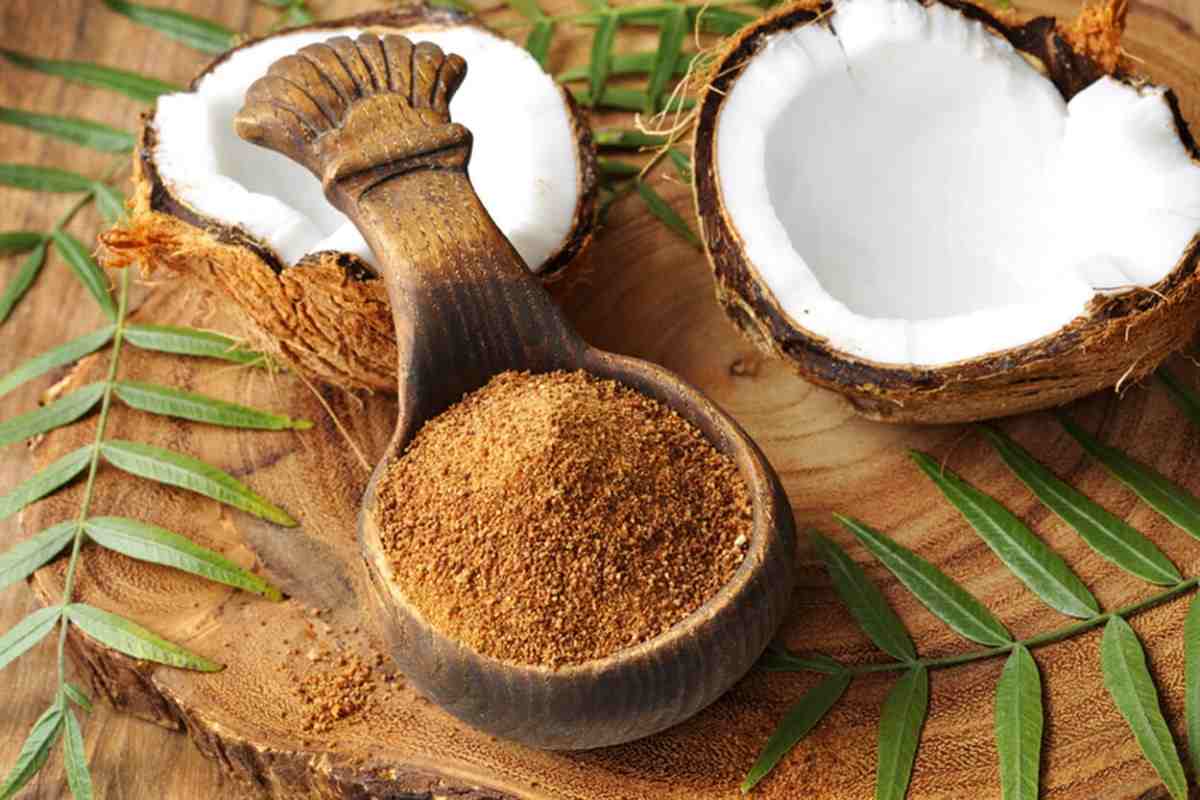
Given how many calories it would contain, it wouldn’t be worthwhile.
But if you have the choice, it’s better to obtain some nutrients than none at all, even if it’s just a little bit.
Last but not least, numerous date sugar formulations contain trace amounts of fiber, which, when added in considerable quantities to food for cooking or baking, can significantly improve the benefits to health.
Date sugar can occasionally contain fiber since date sugar is essentially dried and crushed dates, and dates naturally contain fiber. The main ingredient in date sugar is dried and crushed dates.
It is crucial to check the Nutrition Facts label before starting because this can vary based on the brand.
The most crucial considerations when choosing between date sugar and coconut sugar are your preference for taste and texture as well as the intended use. As this essay has shown, both are essential elements in the cooking and baking processes.
Even though coconut sugar appears to be slightly superior to sugar nutritionally, this does not preclude you from using both occasionally and appreciating them equally.
When it comes down to it, consuming as little added sugar as possible is generally advised to preserve overall health.
